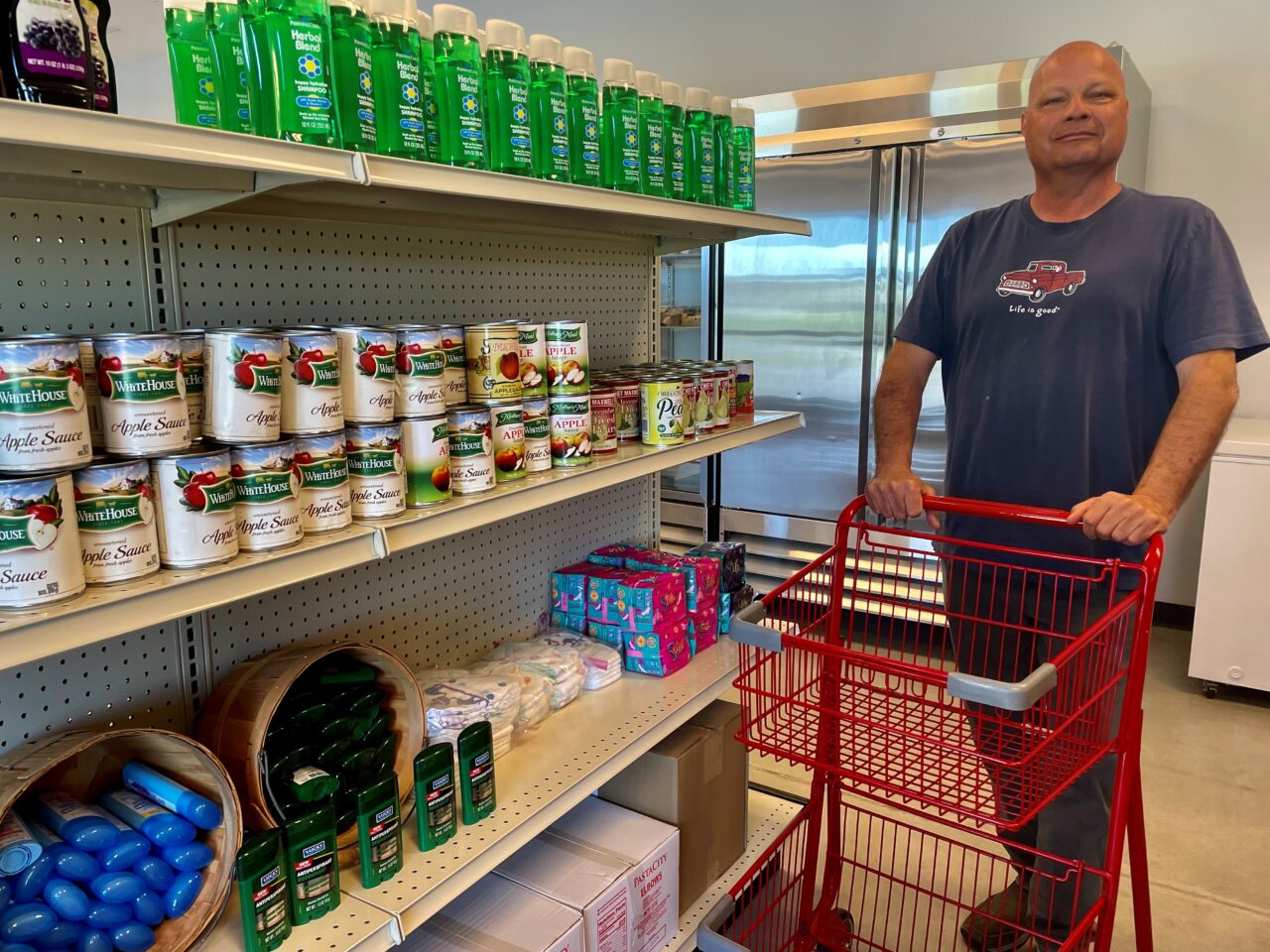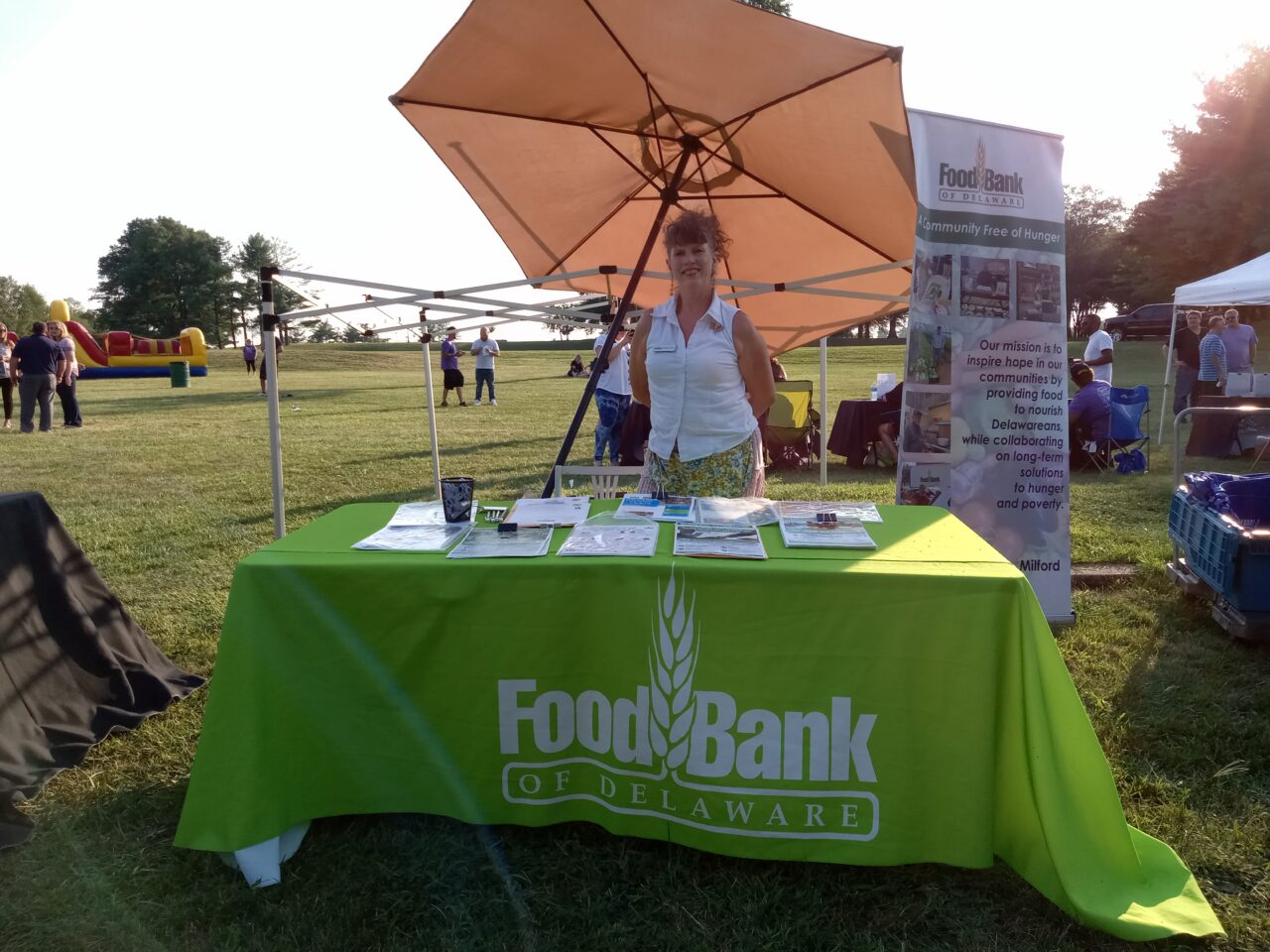Let’s work for a future without hunger
November 6, 2017
By Patricia Beebe
President and CEO, Food Bank of Delaware
This op-ed appeared in The News Journal on Sunday, November 5, 2017.
In my role as CEO of the Food Bank of Delaware, I observe daily our staff and hunger relief partners working tirelessly towards our vision of a hunger-free Delaware, distributing over 8.1 million pounds of food to community members at risk of food insecurity annually, and most importantly making a positive impact on thousands of lives.
However, no single organization can eradicate hunger in Delaware on its own. We at the Food Bank of Delaware have always relied on strong strategic alliances within the Delaware community.
Hunger is not just a physical sensation. Anxiety about not knowing where your next meal is coming from hampers emotional wellbeing, and those experiencing chronic hunger are at higher risk for long-term health complications including heart disease and diabetes. Inadequate nutrition impedes cognitive development in babies, and in school, hungry children are more likely to experience behavioral issues, have trouble focusing and often struggle with attendance.
I have observed the lasting effects of food insecurity, which penetrate all aspects of daily life. Hunger cannot be solved by food distribution alone. Teachers, healthcare providers, academics, counselors, policy makers, business and community leaders, caseworkers, faith-based organizations — we all have a role to play as anti-hunger advocates. Only by pooling our resources and expertise can we have a great enough impact to meet our neighbors’ most basic needs
One Newark grandmother is taking care of six grandchildren. She says she never imagined needing assistance as she had worked her entire life, but a back injury and the demands of raising 6 young boys on her own required her to stop working. She was hesitant to reach out for help at first, but “when the kids need food, you swallow your pride,” she said.
On top of these struggles, a breast cancer diagnosis last year added to the family’s hardship. Despite setbacks, this Newark resident is determined to get back on her feet.
Lenny McClain came to the Food Bank of Delaware’s Culinary School after a 13-year prison stint. He admits to making mistakes in life, but after receiving funding to attend the 14-week culinary arts training program through Delaware WONDER, a program administered by Delaware’s Health and Social Services Division of Social Services, Lenny is on the right track.
The WONDER program, funded through a USDA SNAP Employment & Training (SNAP E&T) pilot program, is designed to promote long-term self-sufficiency and independence by preparing SNAP recipients for employment through work-related education and training activities. Lenny now runs the Food Bank of Delaware’s food cart and is learning the ins and outs of running a small business.
“I want to say that no matter what they are going through in life, there is always a possibility of bouncing back to be resilient,” he advised. “My past is my past and it has shaped who I am.”
Families like these could be hurt by proposed budget cuts to a major government anti-hunger program.
The Supplementary Nutrition Assistance Program (SNAP) program currently increases food access for one in every six Delawareans each month. Three out of every four families served through this program have school-age children in their household.
Now, these families face uncertainty on whether or not they will continue to receive benefits.
Congress has just passed a budget resolution that proposes cutting the Supplemental Nutrition Assistance Program (SNAP) by $150 billion dollars, more than 20 percent, over the next 10 years. The Center on Budget and Policy Priorities estimates that this will either end benefit eligibility for millions of families or drastically reduce the number of SNAP dollars available to the millions of families, seniors and people with disabilities who rely on the program to meet their nutritional needs.
The SNAP cuts come as part of a larger proposal to slash social spending by $1.5 trillion, scaling back or eliminating services that support working and middle class families. Proposed cuts to the Earned Income Tax Credit, Medicaid expansion, Social Security income for people with disabilities, school meal programs, Pell Grants, and housing assistance will leave low-wage workers, folks with chronic medical conditions, youth living in high-need areas, and senior citizens at risk of being unable to cover their living expenses.
These programs have proven that they improve the lives and livelihoods of some of our most vulnerable community members.
Although the SNAP program does not cover a family’s total grocery costs, it is a sensible, cost-effective and efficient solution that helps meet the emergency food assistance needs of our neighbors. Economists have projected that every dollar invested in SNAP stimulates the economy by an estimated $1.50 – $1.70.
Food banks and similar nonprofit organizations currently fill in the growing gap between how far SNAP benefits will stretch and the sustenance required to keep a family from going hungry.
What will happen to the hungry? The people working long hours who just don’t earn enough? Those struggling with cost-prohibitive healthcare premiums? Whose job is it to fill this growing disparity?
Those relying on SNAP and other safety net programs are hardworking Delawareans who need a hand up – not a hand out.
We must channel our shared political will to ensure our legislators not only preserve the social safety net, but also craft policies to promote the educational and vocational opportunities necessary to give those facing hardship the tools they need to earn a living wage and rise up out of poverty. If we fail to provide proactive preventative solutions to poverty and hunger, it will only lead to outcomes requiring more costly interventions.
Since 2009, the Coalition to End Hunger has been bringing together a diverse array of stakeholders from government, business, education, academia, and nonprofits, with the purpose of developing a comprehensive approach to the issue of hunger in the state of Delaware.
We need your help, if you’d like to get involved, please contact Chad Robinson, Director of Strategic Initiatives at the Food Bank of Delaware, at crobinson@fbd.org or by phone, (302) 393-2010.










